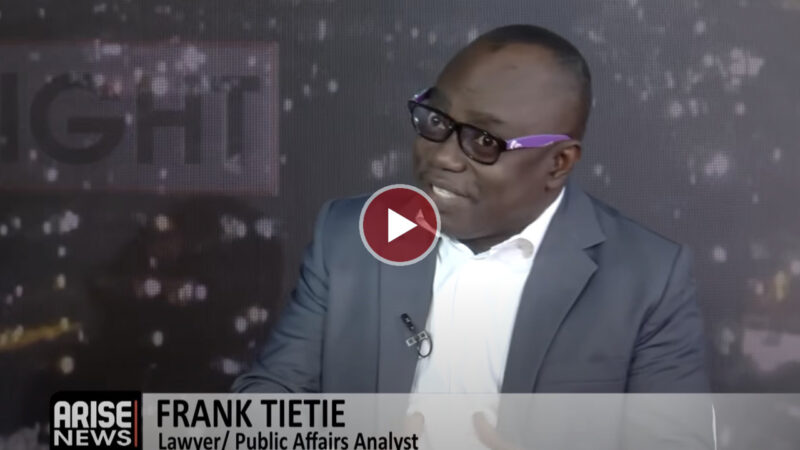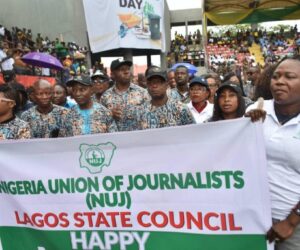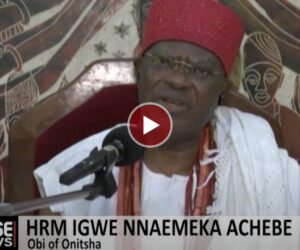
Lawyer and public affairs analyst, Frank Tietie, has raised the alarm over what he described as a “crisis situation” in the Federal Capital Territory (FCT), warning that Abuja is no longer safe and that the sense of insecurity among residents has reached unprecedented levels.
Tietie, who spoke during an interview on ARISE News on Saturday, said there was a widening disconnect between the authorities and the security realities faced by residents.
“The general understanding and feeling in the FCT is that it’s not safe,” he said. “Those of us who moved here about 20 years ago can still have a point of reference. What we see now is a crisis situation, and what makes it even more critical is that there is no commensurate response on the part of the authorities. So the residents of the FCT are actually feeling very hopeless when it comes to security and safety.”
Tietie said criminality was now rampant even in areas that used to be considered secure.
“Apart from gated estates—which are still having a lot of troubles because we often recruit the worst among us, the jobless, to man the gates—security has broken down,” he explained. “If you now look at the streets of the FCT, even in the city centre, particularly around Area 1 and Gwagwalada Junction, it’s a beehive of criminality, lawlessness and recklessness. It seems as if the authorities deliberately look away in order not to upset the status quo.”
According to him, criminal elements have taken advantage of what he called a “vacuum of law enforcement,” likening the growing threat to the early stages of the Boko Haram insurgency.
“They’ve seen that the FCT is so porous it can be invaded any time,” he said. “That’s why insecurity, which used to be limited to the outskirts like Mararaba and Karu, has now moved into the city centre.”
Tietie also painted a grim picture of lawlessness in the capital, saying that even basic traffic rules are ignored because “nobody enforces anything anymore.”
He lamented that Abuja’s command and control system haa virtually collapsed.
“This city ought not to sleep,” he declared. “The FCT police command ought not to shut down at any time. If you pass through the force headquarters at night, you won’t see any lights. So where is the command and control centre of the FCT? Who is watching over the FCT? Nobody.”
On the broader question of the performance of Nigeria’s security agencies, Tietie said while authorities often released impressive statistics about arrests and rescues, “Nigerians don’t feel safe.”
“Let it not be that these are all opportunistic statements meant to give a sense of duty,” he cautioned. “Because the truth is, people do not feel any safer. The situation is worse than what many realise. If insecurity can thrive less than five minutes’ walk from the Force Headquarters, imagine what is happening in places like Kubwa or Mararaba.”
Tietie argued that the country’s security operatives were “overwhelmed, under-equipped, and poorly managed.”
“They are few, under-motivated and not properly managed,” he said. “You drive around the city at night and see policemen begging for money. Is that how to do policing? There is a systemic problem, and it’s not about blaming individuals.”
He also questioned the limits of the FCT Minister’s authority, noting that the security architecture leaves local leaders powerless.
“What is the Minister saying when he claims he’s responsible for security in this territory? He is not—and he knows it,” Tietie said. “He cannot recruit, discipline, or redeploy any police officer. There is a level of irresponsibility in the system, and it’s that system that has made people who should provide security unaccountable.”
Calling for reforms, the lawyer expressed support for the creation of state and community police but warned that policing must be decentralised to be effective.
“I’m glad the National Assembly is working on a constitutional amendment for state police,” he said. “We need policing at all local levels because the essence of organising a state is to guarantee security and liberty. The president must remember that as governor of Lagos, he was the chief campaigner for state police because he knew how important it was to control and determine the security of his state.”
Tietie, however, cautioned that creating state police alone would not solve Nigeria’s security problems unless there was leadership accountability and social reform.
“State police will only make our political leaders more responsible,” he noted. “Our system has made them lose a sense of responsibility. How can anyone go to sleep at night knowing that people are poor and unsafe?”
He also linked rising insecurity to poverty, unemployment, and the proliferation of shanties across the capital.
“We have a large number of unemployed persons, especially from northern Nigeria, who come into the FCT and create shanties overnight,” he explained. “These places harbour criminals who see the contrast between their lives of squalor and the life of opulence around them.”
Despite his criticisms, Tietie acknowledged some improvements, particularly in the FCT’s street lighting initiative.
“To be fair, the minister has improved lighting in some parts of the city,” he said. “Places that were perpetually dark, like the stretch around Area 1 and Wuse, now have bright green and white lights. That’s commendable, but it doesn’t solve the core problem.”
Tietie concluded with an appeal to the government to prioritise security as the foundation of governance.
“Security is the most expensive venture, but it is also the most necessary,” he said. “We must design a system that makes people responsible for the safety of their communities. Without security, there is no liberty, and without liberty, there can be no progress,”he said.
Boluwatife Enome
Follow us on:








